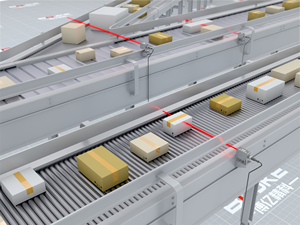Introducing Long Range Laser Distance Sensors
Long range laser distance sensors are sophisticated instruments designed to accurately measure distances over extended ranges. Leveraging cutting-edge laser technology, these sensors have become integral to various industries such as construction, surveying, logistics, and industrial automation. Their precision and reliability make them indispensable tools for professionals seeking to enhance efficiency and productivity in their operations.
Types of Long Range Laser Distance Sensors
Long range laser distance sensors come in several types, each tailored to meet different operational needs and environments. Understanding the variations can help users select the ideal sensor for their specific projects.
- Time of Flight Sensors: These sensors calculate distances by measuring the time it takes for a laser beam to reflect off an object and return to the sensor. They are suitable for a variety of applications, from construction to robotics.
- Phase Shift Sensors: Utilizing the phase difference of laser light to measure distance, these sensors are highly accurate and are often used in high-demand scenarios, like industrial manufacturing.
- Compact Laser Sensors: Designed for smaller projects or confined spaces, these sensors provide high accuracy in limited areas, making them ideal for tight working environments.
- Wireless Laser Distance Sensors: These sensors integrate wireless technology, allowing for remote distance measurements and data transmission, enhancing flexibility on job sites.
Applications of Long Range Laser Distance Sensors
Long range laser distance sensors are versatile tools applicable in several fields. Their precision and speed make them suitable for diverse tasks, which include:
- Construction and Civil Engineering: Accurate measurements ensure that construction projects adhere to specifications and safety standards.
- Logistics and Inventory Management: These sensors streamline warehouse operations by measuring storage spaces and tracking materials effectively.
- Surveying and Mapping: Professionals utilize laser sensors to collect precise geographical data and create reliable topographical maps.
- Automation and Robotics: In automated systems, sensors assist in navigation and obstacle detection, enhancing operational safety.
Features and Advantages of Long Range Laser Distance Sensors
What sets long range laser distance sensors apart is their advanced technology and significant benefits that improve user experience and operational efficiency:
- High Precision: Offers millimeter-level accuracy, crucial for tasks where precision is paramount.
- Long Measurement Range: Capable of measuring distances beyond 100 meters, these sensors can handle large-scale projects with ease.
- Fast Measurement: Provides quick readings, ensuring that workflows remain uninterrupted and efficient.
- User-Friendly Interfaces: Many sensors come equipped with intuitive displays and connectivity options for easier data access and management.
- Durability: Built to withstand harsh conditions, these sensors are often weatherproof and resistant to shocks, suitable for outdoor and industrial applications.
- Enhanced Data Processing: Integrated features enable the collection, analysis, and storage of measurement data for future reference and reporting.






















































































































































































































